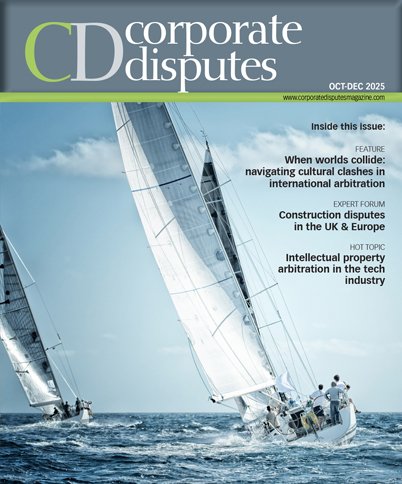INTELLECTUAL PROPERTY ARBITRATION IN THE TECH INDUSTRY
CD: Could you provide an overview of the prevalence of intellectual property (IP) disputes in the technology industry? What types of disputes are commonly arising?
Brown: Patent litigations concerning standardised technologies are some of the most common and hard fought intellectual property (IP) disputes in the technology industry. A patentee that has declared patents essential to the implementation of a standard – standard essential patents (SEPs) – is typically obliged to offer a licence on fair, reasonable and non-discriminatory (FRAND) terms to anyone who wants to practice the standard. Where a patentee is unwilling to comply with their obligation, they could forfeit the right to obtain injunctive relief for infringement of the patents. Disputes arise when parties cannot agree on FRAND licence terms. Where negotiations fail, litigation is common: a patentee can sue for infringement, seeking injunctions to compel an implementer to take a licence in multiple jurisdictions, while the implementer in turn often challenges the validity of the patents. Commonly in these disputes, one of the parties asks a competent court to determine the FRAND terms of a licence to the relevant portfolio, which often leads to a global settlement.
Litt: We are living through the rise of the machines, and like all other features of modern life, we are litigating it. IP disputes are a constant in the technology industry, where innovation and competition are the name of the game. Companies rightly view their IP portfolios – patents, trade secrets and software copyrights – as core to valuation and competitive advantage, which means that disputes over ownership, infringement and licensing hit the business where it counts. Common disputes include patent infringement, including issues involving SEPs, misappropriation of trade secrets following employee mobility or failed partnerships, and disagreements over technology transfers and royalty terms in licensing agreements. Cross-border disputes are now de riguer, often with at least one party from east Asia, which is the centre of the high-tech manufacturing world. With generative artificial intelligence (genAI), data rights and open-source licence violations entering the fray, the complexity and stakes are only growing.

